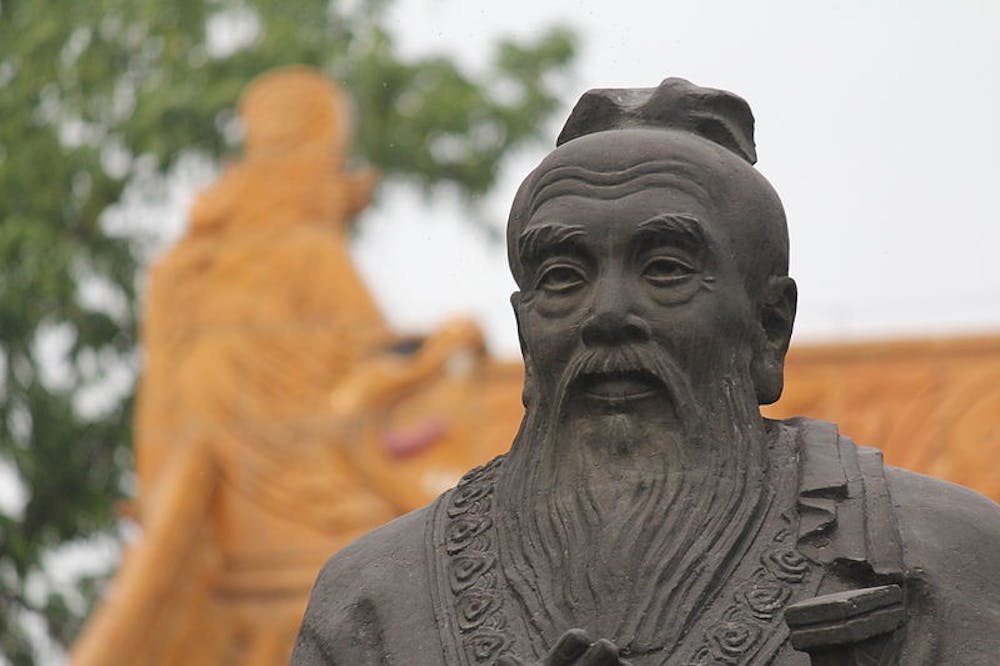A monochromatic Instagram feed, a Pinterest-inspired dorm room, geometric tattoos…so aesthetic.
When we think of the word “aesthetic,” the first thing that comes to mind is visual beauty. However, as a result of my decision to better understand my heritage, my parents, and the country I grew up in for 17 years, I have learned that our instinct to attribute aestheticism to physical beauty is nothing but a modern artifact.
It is the second week of the semester of Spring 2019. I sit in Professor Wong’s Chinese philosophy class, discussing the minutiae of The Analects. Riddled with seemingly random lessons on filiality, tradition and family, The Analects would not be called a light read. However, the Eastern contemporary of Socrates had a lot to say about what it means to live a good life. For Confucius, a fully realized human life is one in which the individual has a beautiful, harmoniously coordinated interaction with members of their community. The actions of the individual give meaning to the whole, and the relationship the individual has with the whole gives the individual’s life meaning. For all you STEM majors out there, let’s call this a symbiosis.
Confucian ideology involves more than respecting your elders. Like the Lockean social contract, Confucius posits that to interact with others gracefully and skillfully can be equated to the fulfillment of a sacred bond. Similar to the Golden Rule, to partake in such relationships as “free participants” who have “equal dignity” is to do something beautiful and valuable, in and of itself.
To echo the question of the genuinely curious white male in my class, why should you care about what some guy in China said 2,000 years ago? I could say that you should care simply because you should want to be a good person, but that is too abstract of an explanation to convince most Duke students. Instead, I point to a document that is held in the highest esteem, the Declaration of Independence.
The opening lines of the Declaration of Independence hold a special place in the heart of red-blooded Americans. You proudly “hold these truths to be self-evident, that all men are created equal.” What school-age children are not forced to memorize, however, are the closing lines of this seminal document, which states, “to mutually pledge to each other our Lives, our Fortunes, and our sacred Honor.” The notion that human lives are only fully realized when we partake in mutually respectful relationships with one another is not a purely eastern phenomenon. Choosing to do the right thing for the sake of yourself and others is commendable, beautiful, and most of all, part of what makes us human.
Last year, I was asked to answer the question “Why do you choose honor?” When I think about that question now, it does not seem like a choice. I do what feels right to me, and it feels right because it is aesthetic, and its aestheticism is pleasing. What I cannot wrap my head around is this: if choosing to be moral comes with as much, if not more, pleasure as admiring a beautiful painting or listening to your favorite song, why do we still need to convince people to do the right thing? It seems that all around me people worship the ugly as what is “in.”
To the Crowell resident who thought it would be funny to push over a bike to impress his friend, can your action be called beautiful? To the two professors who threatened the Chinese students just trying to connect through a shared language, where was your forgiveness and humility? And finally, to you, Duke student: I challenge you to choose the beautiful.
This week's column was written by Megan Zhao, a Trinity sophomore.
Get The Chronicle straight to your inbox
Signup for our weekly newsletter. Cancel at any time.
Kushal Kudakia, President of Duke Honor Council, is a Trinity junior. his column for Duke Honor Council runs on alternate Fridays.

